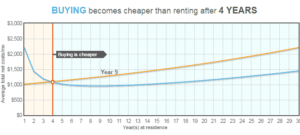When you’re looking to sell your house you must make sure you’re dealing with a credible cash home buyer. Unfortunately, like many industries, the real estate industry isn’t free from scams. In this piece, we will give eight pieces of valuable advice for avoiding scams when selling your home.

8 Tips for Avoiding Scams When Selling Your Home
The promise of a quick, all-cash transaction might sound appealing, especially if you need to sell your home fast. Still, it’s crucial to verify the legitimacy of the buyer before moving forward. This post will provide essential tips and insights to help you verify the credibility of cash home buyers and avoid scams.
1. Research the Buyer Thoroughly
The first step in avoiding a scam is to do your homework. Every company should have the goal of creating a positive online reputation. But it’s not always easy. It’s easy to check out potential buyers using various online resources, but you have to know what to look for.
- Check Their Website
A legitimate cash home-buying company will have a professional-looking website. Look for detailed information about the company, including contact details, information on how they operate, and testimonials. Be wary of websites that seem hastily put together, lack contact information, or provide little insight into the business. A professional site doesn’t automatically mean they’re legit, but it’s a good starting point. - Look for Online Reviews
A simple online search of the company’s name along with the word “reviews” or “scams” can tell you a lot. Look for feedback from other sellers who have worked with the company. Trusted sites like Google reviews, the Better Business Bureau (BBB), and Trustpilot can offer good insights into whether the cash buyer operates fairly. Keep in mind that some companies might have fake reviews, so read multiple sources. - Check Their BBB Rating
The Better Business Bureau is one of the most reliable sources for checking a business’s credibility. Check to see if the buyer is accredited with the BBB and read any complaints or reviews filed against them. While not every company will be listed, those that are accredited with an A+ rating typically have a solid track record of ethical business practices. - Look for a Physical Office
Legitimate cash home buyers often have a physical office location. If you can’t find an office address on their website, that’s a potential red flag. Many scammers operate exclusively online or out of temporary locations to avoid detection. You can always drive by or check Google Maps to ensure the office location exists.
2. Ask for References and Past Transactions
Legitimate buyers should be able to provide references or examples of past transactions they’ve completed. Don’t hesitate to ask for these references and follow up with them. Speaking with previous sellers can give you an idea of how the buyer operates and whether they deliver on their promises.
Here are some questions to ask for references:
- Did the sale go smoothly?
- Were there any hidden fees or unexpected issues?
- Did the cash buyer follow through with the promised payment?
If the buyer is hesitant to provide references or claims they can’t share this information due to privacy, it may be a sign that they aren’t as transparent as they claim.
3. Verify Proof of Funds
One of the biggest advantages of working with a cash buyer is the promise of a quick, no-hassle payment. But before you get too far into negotiations, you should verify that the buyer has the funds to purchase your home.
A legitimate buyer should be able to provide you with proof of funds. This can come in the form of a bank statement or a letter from their financial institution. Be wary of buyers who provide vague answers or hesitate to show proof of their financial ability. If they can’t demonstrate that they have the cash ready to complete the transaction, you should walk away.
4. Avoid Buyers Who Charge Upfront Fees
A major red flag is when a buyer asks you to pay any sort of upfront fee. Some scammers may tell you they need money for a “processing fee” or to conduct a home inspection. In a legitimate transaction with a cash home buyer, the seller should not have to pay any upfront costs. The buyer typically handles any necessary fees like inspections or closing costs.
If you’re asked to pay for anything before the transaction is complete, this is likely a scam. A legitimate buyer has no reason to ask for your money before the deal is finalized.
5. Watch for Unusually High Offers
If a cash buyer is offering a price that seems too good to be true, it probably is. Scammers often lure sellers in by making an offer far above market value. They may later try to renegotiate the price after they have roped you in, or they may disappear entirely after gaining some form of leverage in the deal.
It’s important to remember that while cash buyers are convenient, they typically offer a bit less than market value because they are purchasing homes as-is and are often looking to make a profit by reselling or renting the property. If you get an offer that is significantly higher than other estimates or market value, that’s a red flag.
6. Ensure the Buyer Uses a Legitimate Title Company or Attorney
Any credible cash buyer should be willing to use a trusted title company or attorney to complete the sale. These professionals ensure the sale is legal and legitimate and help facilitate the transfer of ownership and funds. If the buyer insists on skipping this step or wants to use a suspicious or unknown entity for closing, that’s a major warning sign.
Ask for the name of the title company or attorney that the buyer uses and do your research to ensure they are legitimate. A reputable title company or real estate attorney will also be able to help you confirm the legitimacy of the buyer.
7. Trust Your Instincts
Big on our list of tips for avoiding scams when selling your home is to trust your instincts. If something feels off or you notice inconsistencies in the buyer’s behavior or communication, don’t ignore those red flags. Scammers often apply pressure, pushing for a quick deal without providing the necessary information or time for you to consider your options.
Look for the following signs that might indicate a scam:
- The buyer avoids direct communication, insisting on handling everything via email or messaging apps.
- They pressure you to make quick decisions without giving you time to consult with others.
- The buyer refuses to provide proof of funds, references, or a legitimate closing process.
- You notice inconsistencies between what they say and the information you find online.
8. Get Everything in Writing
One of the most important things you can do to protect yourself from scams is to get everything in writing. This includes the offer, the conditions of the sale, and any promises the buyer makes. Verbal agreements are hard to enforce, and scammers often use this to their advantage.
A legitimate cash buyer will have no problem putting everything down on paper and signing a contract that protects both parties. Always read the contract carefully, and if anything seems confusing or unclear, don’t hesitate to ask questions or consult with a legal professional.
Selling your home for cash can be a convenient and efficient way to move on from your property quickly. However, it’s crucial to ensure that the cash buyer you’re working with is legitimate and trustworthy. By doing your research, asking for proof of funds, verifying their history, and being wary of red flags, you can protect yourself from scams and ensure a smooth and secure transaction.
With proper diligence, you can avoid fraudulent buyers and confidently sell your home to a reputable cash buyer who will make the process easy and stress-free.



